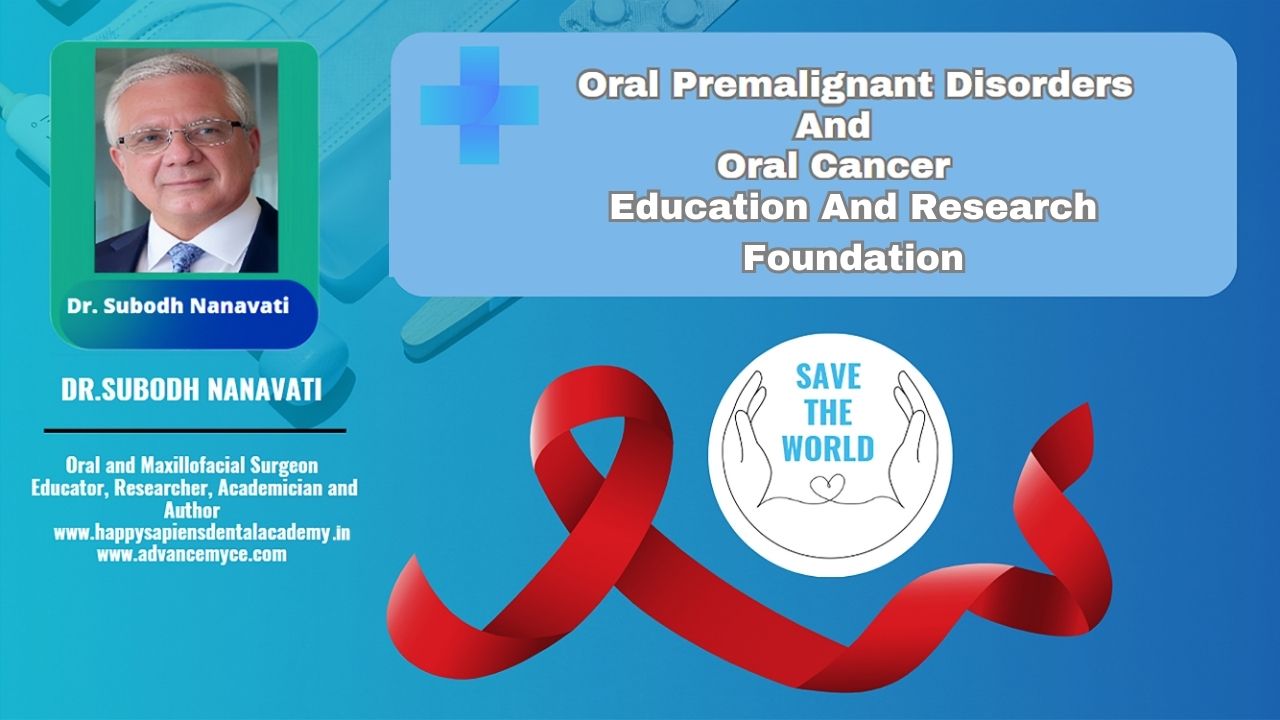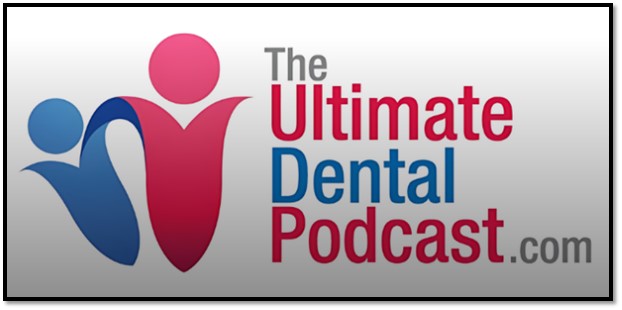[A] Oral Premalignant Disorders and Oral Cancer Education and Research Foundation

A Light in the Shadows: The Mission of the Oral Premalignant Disorders and Oral Cancer Education and Research Foundation.
The Oral Premalignant Disorders and Oral Cancer Education and Research Foundation is dedicated to raising awareness and improving outcomes regarding oral health, especially concerning premalignant disorders and oral cancer. Our mission is rooted in the belief that knowledge empowers individuals to overcome the fear and uncertainty associated with these conditions. The foundation fosters groundbreaking research by collaborating with experts worldwide to identify early indicators of disease. Community outreach, workshops, and educational programs engage patients, families, and healthcare providers to create a supportive network
Educational Videos:
[1] Oral cancer constitutes one-third of head and neck cancers in the U.S. and half of worldwide cases. Oral cancer is a significant global health issue, with an estimated 354,864 new cases reported worldwide in 2020 alone. However, there is no clinical, biochemical, or molecular ability to predict the cancer progression of oral premalignancy mucosal lesions (OPML). There are also no reliable tools to forecast the advancement of oral precancerous lesions. The knowledge of early diagnosis of oral premalignant disorders can dismantle healthcare barriers, facilitating screening that extends even to the world’s remotest corners. Armed with this knowledge, we can detect oral cancer at its nascent stages, significantly amplifying the chances of successful treatment and saving precious lives. In the battle against oral cancer, late detection is a recurring theme dentists encounter in patient interactions. This familiar narrative is regrettable and calls for a change. As we teeter on the edge of the technological revolution in oral healthcare, let’s keep our objective clear – our mission isn’t just to combat and prevent oral cancer. This journey of prevention starts with early detection. Let’s seize the potential of knowledge of oral premalignant disorders and, united, alter the course in the battle against oral cancer. The main issues related to Oral premalignant disorders and oral cancer include:
[1] Identify effective strategies for preventing oral cancer at both the patient and population levels.
[2] Learn ways of detecting the disease, especially in “at-risk” populations.
[3] Define risk factors.
[4] Understand how to diagnose oral diseases in vital clinical settings.
[5] See the effectiveness of collaborative approaches within healthcare systems.
[6] Prevent unfavorable or fatal situations that may arise from late detection of oral cancer in patients for both dental professionals and their patients.
Failure to diagnose oral premalignant disorders early can have serious consequences, impacting patients’ lives and potentially tarnishing professionals’ reputations. Delays in diagnosis can stem from issues within the health system or from individual health providers, leading to extended diagnostic intervals. Several factors contribute to these delays, including a lack of awareness of early oral carcinoma symptoms, reluctance to refer patients with suspicious lesions due to fear of making mistakes, excessive workloads in primary care settings, inappropriate treatments being administered without proper justification, clinicians focusing more on pre-existing conditions than new symptoms, and a low rate of general dentists performing oral biopsies. Dental institutes are criticized for inadequately educating dental students about oral premalignant disorders, calling for developing alternative training approaches for dentists and allied professionals.
[2] "The Importance of Early Detection of Oral Cancer" with Dr. Subodh Nanavati

In The Ultimate Dental Podcast episode, Dr. David Moffet interviews Dr. Subodh Nanavati. Dr. Subodh is an OMF Surgeon from Houston, Texas, and is one of the pioneer educators of dentists on the importance of early detection of oral cancer and the need for dentists to prioritize oral cancer screening. In this interview, Dr. Subodh Nanavati discusses his journey in dentistry and his specialization in oral and maxillofacial surgery. He also emphasizes the importance of early detection of oral cancer and the need for dentists to prioritize oral cancer screening, including biomarker studies and salivary diagnostic techniques for early diagnosis. He also discusses the challenges in integrating effective oral cancer screening into routine dental examinations and the need for proper education and awareness among dental practitioners. Salivary tests for biomarkers are highlighted as crucial in detecting oral cancer and assessing the risk level. The discussion also touches on the significance of the oral microbiome and its role in the development of oral pre-malignant disorders. The need for dentists to prioritize saving lives and the potential consequences of misdiagnosis or non-diagnosis is emphasized. The conversation concludes with a call to action for dentists to implement oral cancer screening and utilize salivary tests for better patient care.
What you will learn: [01:20] Journey in Dentistry and Specialization in Oral Surgery [09:56] The Importance of Early Detection of Oral Cancer [16:32] Biomarker Studies and Salivary Diagnostic Techniques [24:55] Integrating Oral Cancer Screening into Routine Dental Examinations [28:30] The Need for Education and Awareness in Oral Cancer Screening [30:40] The Importance of Oral Cancer Screening [31:42] Salivary Tests for Biomarkers: Assessing Risk Levels [36:29] The Role of the Oral Microbiome in Oral Pre-Malignant Disorders [38:25] Dentists’ Responsibility: Saving Lives [42:56] Consequences of Misdiagnosis or Non-diagnosis [46:43]
Call to Action: Implementing Oral Cancer Screening Takeaways • Dr. Subodh Nanavati shares his dentistry journey and specialization in oral and maxillofacial surgery. • Early detection of oral cancer is crucial for better patient outcomes. Biomarker studies and salivary diagnostic techniques can help in the early diagnosis of oral cancer. • Dental practitioners must prioritize oral cancer screening and integrate it into routine dental examinations. • Proper education and awareness are essential for effective oral cancer screening. Oral cancer screening is essential and should be a priority for dentists. • Salivary tests for biomarkers provide valuable information for assessing the risk of oral cancer. • The presence of certain bacteria, fungi, and viruses in the oral microbiome can indicate a higher risk of oral pre-malignant disorders. • Dentists are responsible for saving lives and prioritizing proper examination and screening for oral cancer. • Misdiagnosis or non-diagnosis of oral cancer can have devastating consequences for dentists and their patients. • Governments should consider subsidizing or mandating oral cancer screening to prevent hospitalizations and improve patient outcomes. Sound Bites • From 2011 onwards, I have been in the USA and working with my son as a director in his clinic. • Early diagnosis of oral cancer is a must. And it should be part of the dental curriculum and dental practitioners. •You must use biomarkers. That’s why I always say that chemistry comes first, and then comes physics. •At least a point-of-care diagnostic test needs to be carried out. Then and then, only we will be able to control oral cancer, not otherwise. •It’s not like a COVID test where you either positive or negative, off you go. It’s that sliding scale. •If you want to call yourself a doctor, you must learn to save life. Otherwise, remove the doctor from your name.
